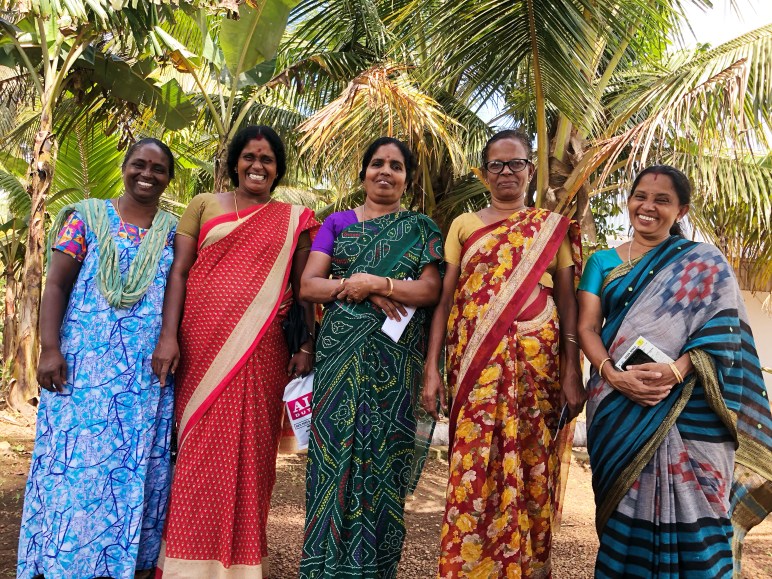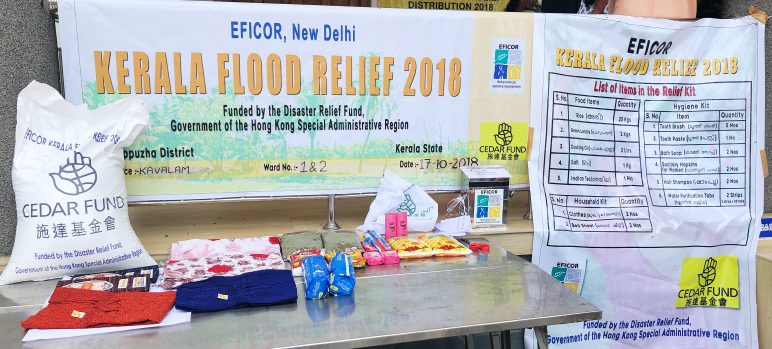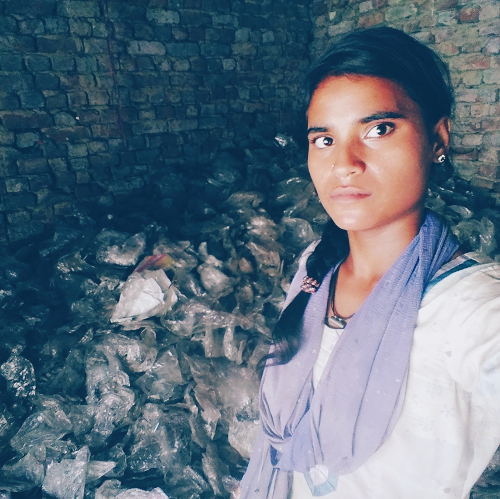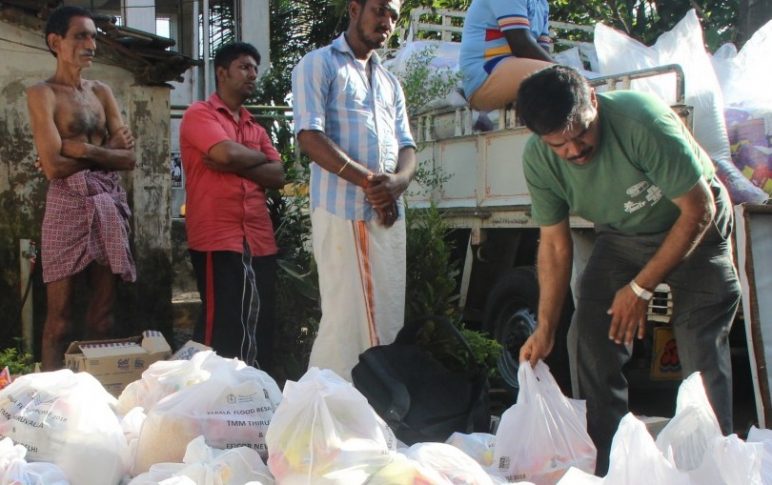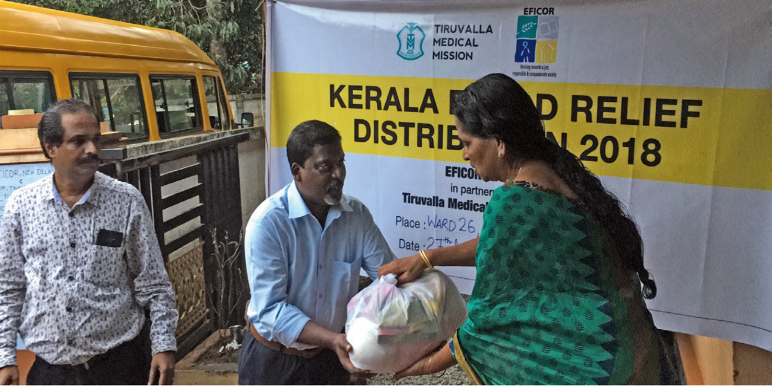“I hope to resume my work in the fields after the floodwater drains away, so that I can put food on the table.”
That was the wish of a flood-affected farmer in the southern Indian state of Kerala. In August 2018, a devastating flood struck Kerala causing over 480 deaths and an economic loss of US$2.8 billion. As the flood victims go through a difficult time of recovery from natural disaster, CEDAR reached out and provided relief aid to them through EFICOR*, our long-term partner in India. Until 27 November 2018, 13,060 families have been benefited from our support. They received relief materials included rice, cooking oil, bath soaps, clothes, and bed-sheets, enough for each household’s use for 1.5 months**.





